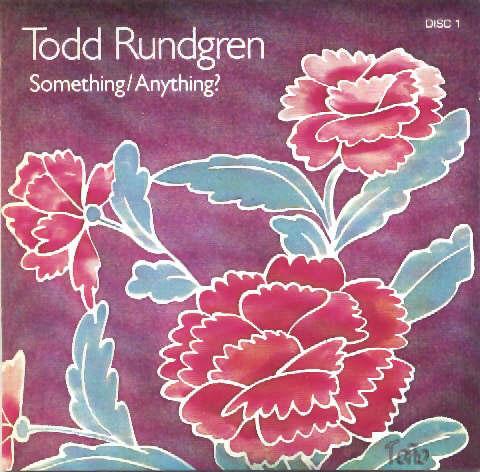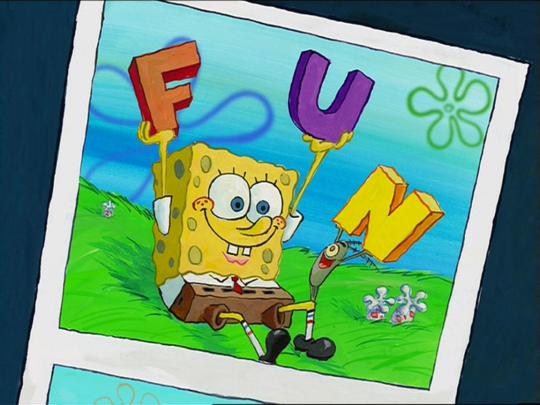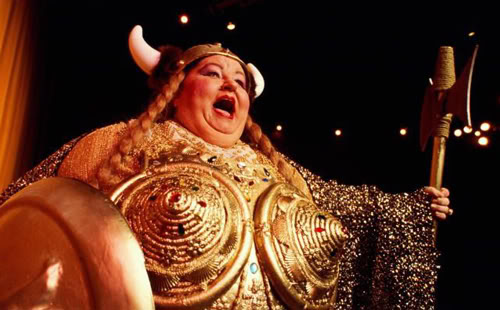Something/Anything by Todd Rundgren

Release: 1972
Style: Pop Rock, Power Pop
Length: 90 min.
Round: Power Pop
Something/Anything is a very different kind of album. Whereas the next album, “A Wizard, A True Star” was all about hyperactive fun and frolicking through the flowers...

This one seems to be more about mainstream hits and something people could easily relate to throughout the 70's as a collection of sweet love songs while still maintainin a child-like behavior at other points in the album.
Side A, named “A Bouquet of Ear-Catching Melodies,” is a short collection of mostly soul-infused love songs that probably got the ladies back in the 70's. “I Saw the Light” is a very radio-geared song, one that's a bit lovey-dovey with Neil Young style vocals and a very 70's pop/soul feel. The next song, “It Wouldn't Have Made Any Difference ,” touches up farther in the generic 70's soul radio-hit aura. The difference is that it's hard to get tired of Todd Rundgren. “Wolfman Jack” is more about harmonized vocals singing their hearts out like a gospel choir to a pop rock song. Rundgren's vocals are noticably different from his high-pitched Neil Young vocals on the first track. But he's clearly having just as much fun.

“Cold Morning Light” goes back to that old love-sound we dadrockers know from our teen years, right? Or at least what we know of our mothers playing all of their favorite Ambrosia hits when we were young. “It Takes Two To Tango (This Is For The Girls)” takes a slightly stranger approach, one a little synthesized. Whereas Wizard was heavily synthesized, this album seems to use it only when necessary. And the end Side A, the guitar-ridden “Sweeter Memories” sends the listener into yet another starry, romantic night, almost cheesy. I can see why Meat Loaf got Rundgren on production. Of course, I'd like anyone who can do motorcycle guitar to produce my album.
Side B: The Cerebral Side
“Intro” is an odd introduction to the many different production/sound flaws albums may or may not have, spoken as if Rundgren was Ben Stein doing his Clear Eyes thing. This quickly ends after one minute, and enters an electronic collection of rhythms called “Breathless.” I immediately see why it's called “The Cerebral Side.” It gets gradually more “cerebral” (Rundgren's cleverly picked word for “experimental”) every ten seconds. “The Night The Carousel Burned Down” quickly ends the abundant synth-fest with a more well-paced and lyrical tune that's backed up just as many backing vocals as their were electronic riffs on the last song. “Saving Grace” begins with a very distorted, monstrous form of vocals, goes into a short and quiet drum solo, andf transcends into another soul-infused piano rock song. “Marlene” is another sweet little pop rock song. At this point, I feel that the album isn't as diverse as Wizard. Despite popular opinion, I currently think this album's actually worse than Wizard. This 90 minute double album will have to change pace really soon for me to consider it better, because I started with Wizard so I can get more used to Rundgren before playing his best. The problem behind that was I didn't expect the two albums to be so different. “Song of the Viking” (fantastic song name) does take a change of pace, one like a simplistic spoof of opera in general, and not like this.

I just googled “Viking Opera.”
And when it looks like this song's going to transcend back into it's original territory, it picks back up and goes into its own sense of goofiness. Side B ends with “I Went To The Mirror,” a track that's much slower and quieter than the rest of the album, at first. But through that slow pace, it got slower and weirder gradually throughout. The album managed to change pace for a little while, so that's good.
Side C: The Kid Gets Heavy
I'm not so sure what to expect from this side. “Black Maria” is noticeably less romantic, but balancing itself between more and less dramatic than the love songs I've been getting. It felt like a rock song. “One More Day” goes back to feeling like something Ambrosia would right. It feels like the alum takes short breaks when it wants to be diverse. The only real difference between this and other songs on the album is that it's more guitar based, even though that's not really broadcasted. “Couldn't I Just Tell You” starts with an acoustic intro, and leads the song from their during the lower parts and the very upbeat parts. “Torch Song” isn't exactly heavy, but it's very dramatic and seriousl;y piano based. Even though it's another love song, it's unique because of that and as well-composed as the rest of the album. Side C ends with a very heavy track (in comparison to the rest of the album). “Little Red Lights” starts with a very noisy and raspy guitar solo, and turns into a high-energy hard rock experience that fails to act as a worthy ending to Side C but acts as a good example of diversity that this album occasionally takes.
Side D: Baby Needs a New Pair of Snakeskin Boots (A Pop Operetta)
I had absolutely no idea what to expect except for more love songs. I wasn't sure I'd get that after “Overture” started playing. Intentionally fuzzily produced at the beginning to give off a “playing on the radio” feel, the song's second half is all distorted vocals and a lot of power pop guitar. It's a lot like an intro to a Zappa album, so I ended up being impressed. It is labelled as an Overture, so I'm not sure if there's an actual story in this. “Dust in the Wind” (not the Kansas song which came out three years later) is yet another love song very much similar to the rest of them on the album, but it's more driven by saxophones, so it's still attempting to be different. The next song, “Piss Aaron,” has a somewhat country feel, so it's very unique for the album. “Hello It's Me” is... do I have to say it?

“Some Folks Is Even Whiter Than Me “ is Rundgren's attempt at being more badass than he generally is. A lot of hard vocals, plenty of jazzy sax, and a heavy beat are all proof of this. “You Left Me Sore” starts out asd a bunch of takes of the same song being messed up by one band member really quickly. After about 30 seconds of that, the actual song starts. So, have you tried turning it off and on again? And Dis D, as well as the album, ends with “Slut.” It's the hyperactivity similar to Wizard that runs this finally. There should have been a couple more songs like that on the album.
As far as my thoughts on the album go, I have to disagree with the general opinion. Too many songs sounded a bit too similar, so there's a flaw right there. But the songs were all great, somethiong enjoyable. But I think most of the songs work together individually as a consistent flow seems to be absent. This is not as good an album as Wizard. However, Something/Anything is still a great listen, and as clear five star album. Every song works very well, even if not every song added something new.
96/100. I need to listen to more in the power pop list before I can decide, but I know my top choice so far is Pinkerton.









 Linear Mode
Linear Mode
